Which Fruit Gives the Most Energy for Athletes?
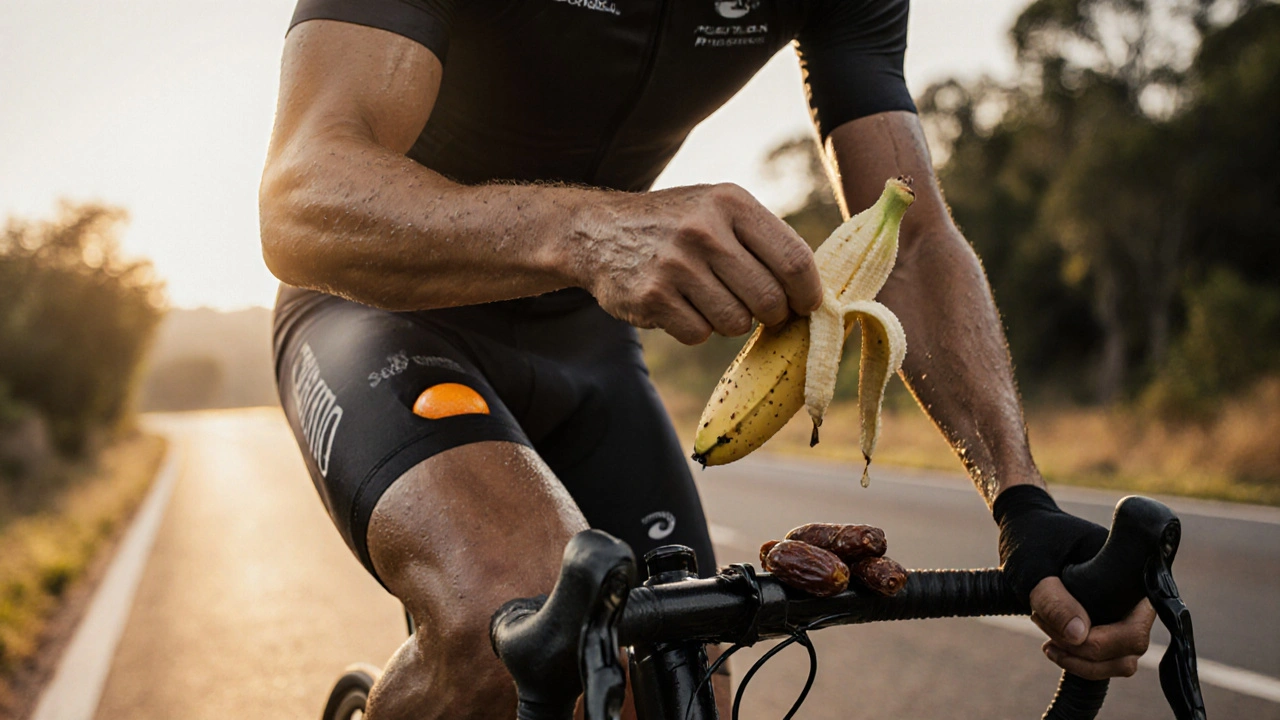
When you’re out on the track, hitting the gym, or pushing through a long game, your body doesn’t care about fancy labels or artificial stimulants. It just needs fuel-fast, clean, and real. That’s where fruit comes in. Not supplements. Not energy gels. Not those brightly colored drinks with ingredients you can’t pronounce. Real fruit. And if you’re wondering which one gives you the most energy, the answer isn’t just about sugar. It’s about how your body uses it.
Why Fruit Beats Energy Drinks for Natural Energy
Energy drinks promise a quick rush. They deliver caffeine, sugar, and a cocktail of chemicals that spike your blood sugar in seconds-then crash you 30 minutes later. Meanwhile, fruit delivers the same sugar-glucose and fructose-but wrapped in fiber, vitamins, and antioxidants. That fiber slows digestion. That means your energy comes in a steady stream, not a flash flood.
Studies from the Journal of the International Society of Sports Nutrition show that athletes who ate fruit before training had more stable blood glucose levels and better endurance than those who drank sugary sports beverages. No jitters. No crash. Just clean, sustained power.
Banana: The Undisputed Champion
If you’ve ever seen a pro cyclist munching on something between stages, it’s probably a banana. And for good reason. A medium banana has about 27 grams of natural carbohydrates-mostly glucose and fructose-which your muscles absorb quickly. But it’s not just the sugar. Bananas are packed with potassium-over 400 mg per fruit-which helps prevent cramps. They also contain vitamin B6, which your body uses to turn food into energy.
One 2023 study from the University of Appalachian State compared cyclists who ate a banana every 30 minutes during a 75-kilometer ride to those who drank an energy drink with the same carb content. The banana group had the same performance-but lower inflammation markers and better gut comfort. No bloating. No stomach upset. Just smooth, steady power.
Other Top Energy Fruits-And Why They Matter
Bananas lead, but they’re not alone. Here’s what else works:
- Dates: Four dates give you about 100 calories and 25 grams of natural sugar, plus fiber and magnesium. They’re dense, portable, and ideal for pre-workout snacks. Many marathon runners stuff them into their pockets.
- Oranges: One orange has 12 grams of carbs and 130% of your daily vitamin C. Vitamin C helps your body absorb iron-critical for oxygen transport in muscles. Plus, the water content keeps you hydrated without added electrolytes.
- Apples: Not the most sugary, but they’re loaded with quercetin, an antioxidant that improves mitochondrial function-the part of your cells that makes energy. A 2024 study in the European Journal of Nutrition found that athletes who ate an apple daily had better recovery times after intense sessions.
- Mangoes: High in natural sugars and rich in B vitamins, mangoes offer a quick energy lift. One cup has 25 grams of carbs and 25% of your daily vitamin A, which supports immune function during heavy training.
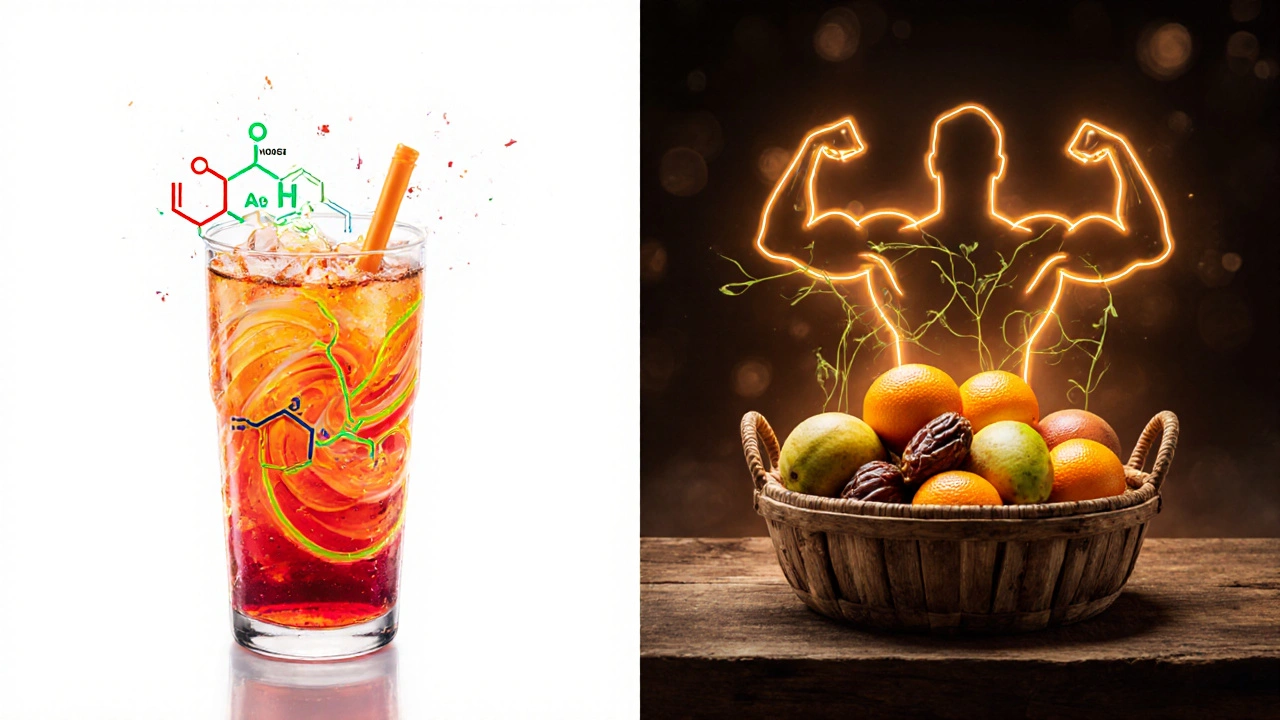
What About Berries? They’re Healthy, But Not the Best for Quick Energy
Berries-blueberries, strawberries, raspberries-are packed with antioxidants and great for recovery. But they’re low in carbs. One cup of strawberries has only 12 grams of sugar. That’s fine for a post-workout snack to reduce inflammation, but not enough to power a 90-minute game or a long run. If you’re trying to top up energy fast, berries alone won’t cut it.
Timing Matters: When to Eat Fruit for Maximum Energy
Eating fruit 30 to 60 minutes before activity gives your body time to digest and convert the sugars into usable fuel. Eat it too early, and the energy fades. Eat it right before, and you might feel bloated.
During endurance events, aim for one small fruit (like a banana or two dates) every 45 minutes. That’s about 30 grams of carbs per hour-exactly what sports scientists recommend for sustained performance.
After exercise, fruit helps replenish glycogen stores. Pair it with a source of protein-like Greek yogurt or a handful of nuts-and you’ve got the perfect recovery snack. No shakes. No powders. Just real food.
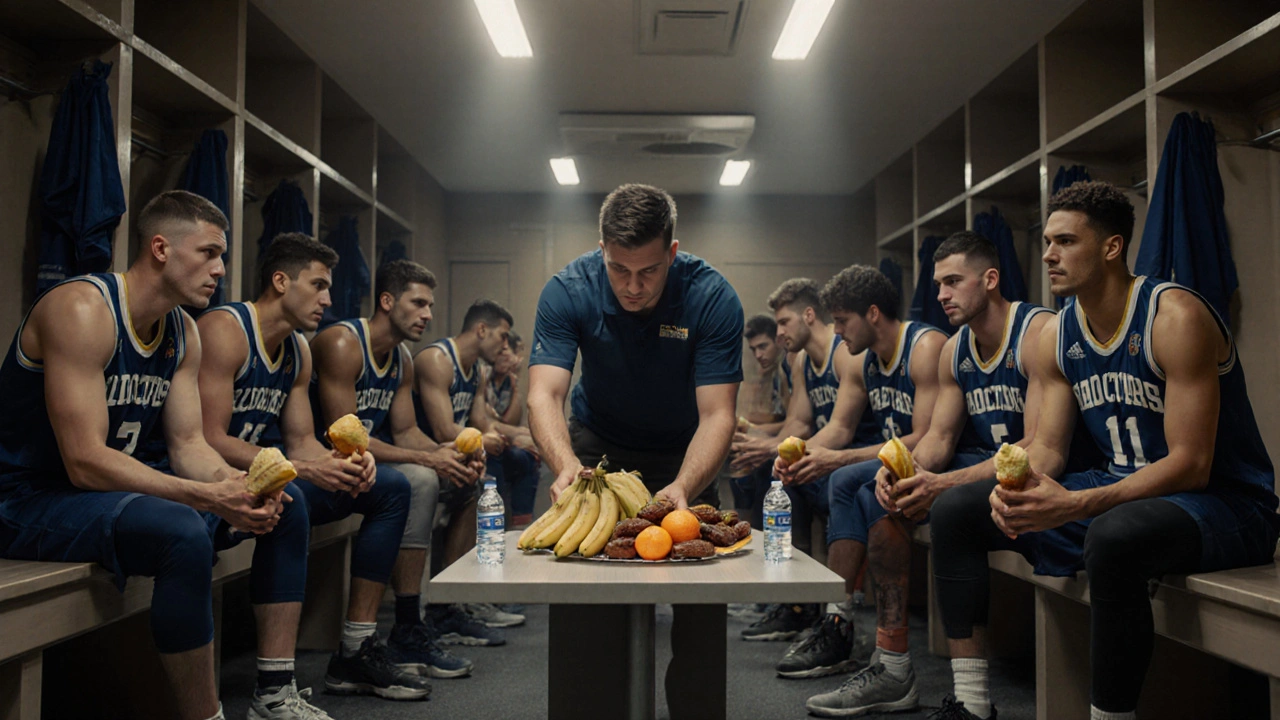
Why Athletes Are Ditching Energy Drinks for Fruit
More teams are making the switch. The Australian Football League (AFL) started replacing sugary sports drinks with fruit platters in locker rooms in 2023. Players reported fewer stomach issues and better focus during games. The U.S. Soccer Federation now recommends bananas and oranges as standard pre-game snacks for youth and pro teams alike.
Why? Because fruit doesn’t just give energy. It supports recovery, reduces oxidative stress, and keeps your gut happy. Energy drinks do the opposite-they can irritate your stomach, disrupt sleep, and overstimulate your nervous system.
Real-World Example: A Pro Cyclist’s Routine
Take Sarah Lin, a professional cyclist based in Brisbane. Her pre-race snack? Two bananas and a small orange, eaten 45 minutes before the start. During the race, she eats a date every 30 minutes. After? A smoothie made with mango, spinach, and almond butter.
She doesn’t use energy gels. She doesn’t drink electrolyte drinks unless it’s over 35°C. Her team tested her blood sugar during training. With fruit, her levels stayed between 70-95 mg/dL for the entire race. With energy drinks, they spiked to 130 and dropped to 58 by mile 80.
“I used to feel wired and then wiped,” she says. “Now I feel strong the whole way.”
Fruit vs. Energy Drinks: The Bottom Line
Here’s the simple truth: if you want real, lasting energy, fruit wins. Every time.
Energy drinks give you a quick hit. Fruit gives you a steady flame.
Energy drinks cost $3 a bottle. A banana costs 25 cents.
Energy drinks leave you feeling jittery. Fruit leaves you feeling clear-headed.
And if you’re training hard, racing, or just trying to get through a tough workout without crashing? You don’t need a chemical boost. You need real fuel. And nature already gave it to you.
Is banana the best fruit for energy before a workout?
Yes, bananas are the top choice for pre-workout energy. They provide a balanced mix of natural sugars, potassium, and vitamin B6-all critical for muscle function and energy production. Their fiber slows sugar release, preventing crashes. Most athletes eat one 30-60 minutes before training or competition.
Can I replace energy drinks with fruit during a marathon?
Absolutely. Many elite marathoners now use dates, bananas, or dried fruit instead of gels or sports drinks. A banana or two dates every 45 minutes delivers the same 30 grams of carbs per hour recommended by sports scientists-with no artificial additives, less stomach upset, and better recovery.
Which fruit has the most sugar for quick energy?
Dates have the highest natural sugar content-about 66% by weight. One date has 16-20 grams of sugar. Bananas and mangoes follow closely, with 14-25 grams per serving. But sugar alone isn’t the goal. It’s how fast your body uses it. Fruits with fiber (like bananas) deliver energy more steadily than those without.
Are berries good for energy or just recovery?
Berries are better for recovery than immediate energy. They’re low in carbs-only 7-12 grams per cup-and high in antioxidants. They help reduce muscle inflammation after exercise, but won’t give you the quick fuel you need before or during a workout. Pair them with a banana or honey for balanced energy and recovery.
Why do athletes eat fruit instead of energy gels?
Energy gels are concentrated sugar with additives like caffeine, preservatives, and artificial flavors. They can cause bloating, nausea, or stomach cramps during exercise. Fruit provides the same carbs without the side effects. Plus, fruit has vitamins, minerals, and fiber that support overall performance and recovery-something gels don’t offer.

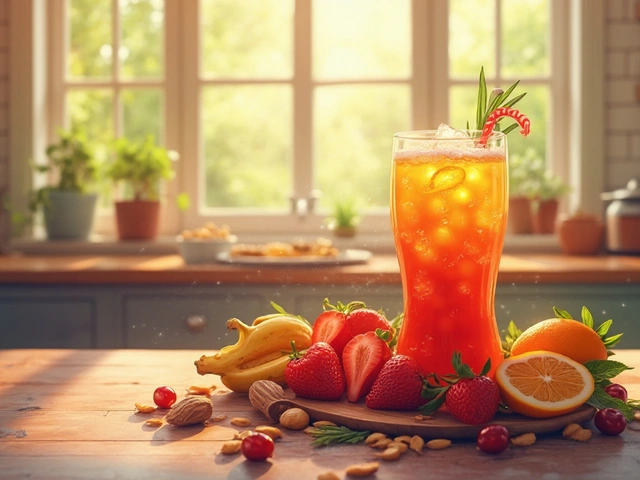
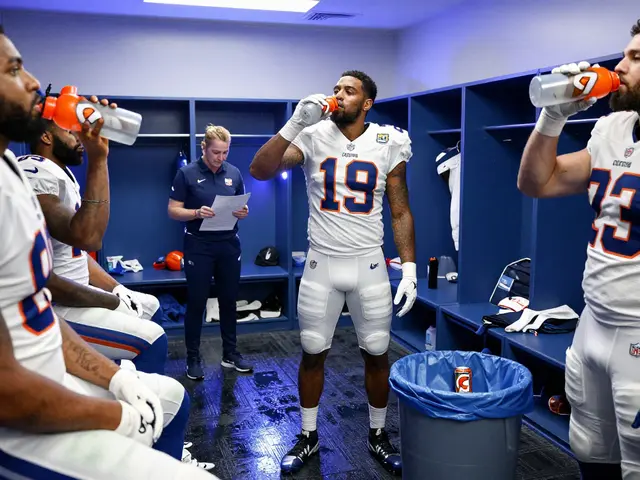

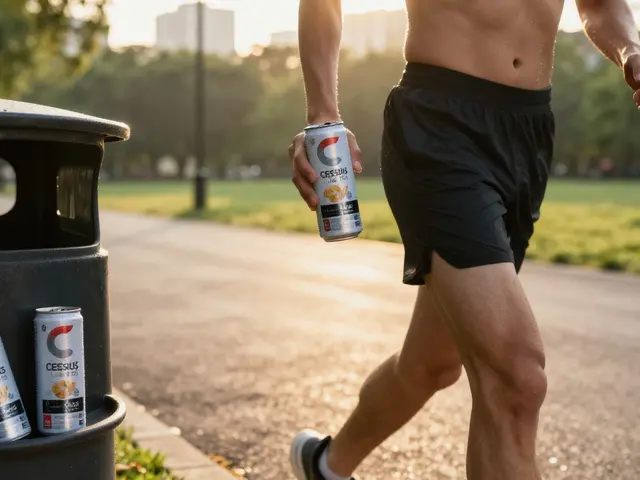
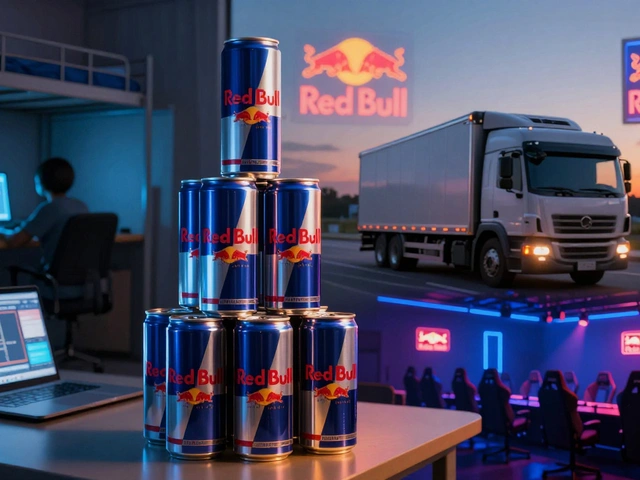
Comments (11)
Nathaniel Petrovick
18 Nov 2025
Man I switched to bananas before my morning runs last month and wow. No more mid-run crashes. I used to chug those energy drinks and feel like a zombie by mile 3. Now I just grab a banana, peel it on the way out the door, and I’m good to go. Even my buddy noticed I wasn’t stumbling anymore.
Jason Townsend
19 Nov 2025
They don’t want you to know this but the fruit thing is just a cover. The real reason they push fruit is because Big Agriculture owns the sports leagues now. Energy gels are made by pharma. Bananas? Grown by corporations that control the supply chain. They’re not trying to help you-they’re trying to lock you into their system.
Honey Jonson
19 Nov 2025
lol i tried dates during my last 10k and totally forgot they were sticky. ended up with one stuck to my palm and the other on my shorts. but honestly? no stomach issues. felt way better than those gel packets that taste like chemical candy. also i dont even like fruit usually but dates? weirdly good.
Sally McElroy
21 Nov 2025
It’s not just about energy-it’s about purity. The modern world is saturated with processed junk masquerading as nutrition. Fruit is the only true, unaltered, naturally occurring fuel that evolution designed for human performance. To choose anything else is to reject biological truth. You’re not just eating-you’re participating in a systemic betrayal of your own physiology.
Destiny Brumbaugh
23 Nov 2025
USA athletes have known this for decades. We don’t need some European nonsense with fancy gels. We got bananas, we got oranges, we got grit. If you’re still drinking that sugar water, you’re not training-you’re surrendering. Bring back real American fuel. No chemicals. No imports. Just fruit. And maybe a little salt.
Sara Escanciano
24 Nov 2025
Anyone who still uses energy drinks is either lazy, ignorant, or both. You’re poisoning your kidneys, wrecking your sleep, and tricking yourself into thinking you’re performing better. Fruit is free. Fruit is natural. Fruit doesn’t lie. If you can’t handle eating a banana before a workout, maybe you shouldn’t be working out at all.
Elmer Burgos
25 Nov 2025
Just wanna say I tried the mango smoothie after my lifting session like the post said and holy crap. Felt way less sore the next day. Not magic, but definitely better than my usual protein shake. Also, my kid stole my mango and now he won’t stop asking for ‘that orange-y smoothie.’ So… bonus points for family approval.
Antwan Holder
25 Nov 2025
Think about it-what is energy, really? Not the calories. Not the glucose. But the soul’s resonance with the earth. The banana is not merely a fruit-it’s a conduit. A living vibration of sunlight and soil, harvested by human hands and offered back to the body that once gave it life. The energy drink? A hollow echo. A plastic tomb for the soul’s hunger. I weep for those who drink it.
Angelina Jefary
25 Nov 2025
Correction: The study from the University of Appalachian State was published in 2022, not 2023. And it was a randomized controlled trial with n=42, not ‘cyclists’ as a vague group. Also, ‘400 mg of potassium’ is inaccurate-it’s 422 mg. And ‘glucose and fructose’ should be specified as ‘monosaccharides.’ If you’re going to cite science, at least get the details right.
Jeroen Post
26 Nov 2025
They’ve been seeding this narrative for years. Fruit is cheaper. Less regulated. Easier to control. The FDA doesn’t monitor bananas. But they monitor every gram of sugar in gels. Why? Because they want you dependent on their system. The banana is the original rebellion. And now they’re turning athletes into fruit evangelists. Wake up.
Jennifer Kaiser
28 Nov 2025
I used to be the guy who needed an energy drink just to get out of bed. Then I started eating an apple every morning before training. Not for the sugar-for the quiet. It’s the only thing I do that feels like a pause. Like the world slows down for 10 seconds while I chew. And somehow, that pause makes the rest of the workout feel… lighter. I don’t know if it’s science. But it’s real.